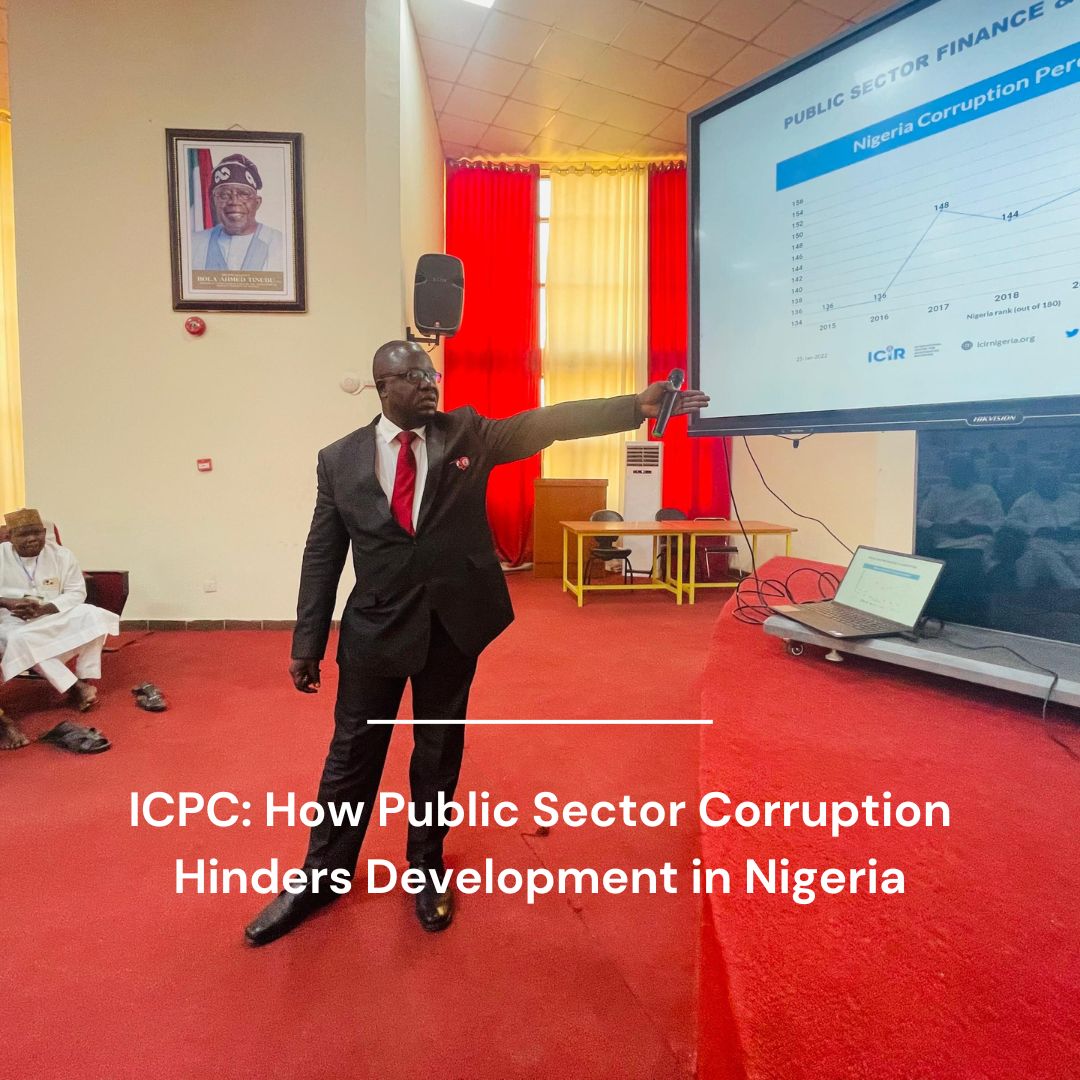The Independent Corrupt Practices and Other Related Offences Commission (ICPC) has revealed how public sector corruption has caused underdevelopment in Nigeria, explaining that it is majorly responsible for making the country’s ambition for sustainable development unattainable.
The revelation was made during a sensitization lecture delivered by Mr. Hassan Salihu, a Deputy Director in the Public Enlightenment and Education Department of the ICPC, at a Workshop on Anti-corruption, Fiscal Responsibility, and Good Governance for Federal/State Government Officials, held at EFCC Academy, Karu, Abuja.
In his lecture titled “Public Sector Corruption: Nature, Causes and Consequences”, Mr. Salihu pointed out that some public servants have penchants for corrupt practices thus making sustainable growth an unattainable ambition for Nigeria.
The Deputy Director went further to expose the rot bedeviling the country as a result of the high-level corruption in the public sector, highlighting a plethora of examples of major corruption cases involving public servants at various levels in the sector.
According to him, “Public sector corruption is not only restricted to stealing monies, but it also covers the acts of impunity, abuse of public offices, and a host of other related offences”.
Salihu cited greed, societal pressure, inadequate and delay in payment of remunerations, and fear of the future as the major causes of corruption, especially among public servants.
In an interactive atmosphere, he engaged his audience in discussing the various ills public sector corruption has done in Nigeria, noting that it was responsible for the nation’s crippling education, poor infrastructure, persisting insecurity, and rotten healthcare system.
He also seized the platform to give an overview of the Corrupt Practices and Other Related Offences Act 2000, the act of parliament establishing the ICPC, spelling out its objectives, functions, various offences, and the punishments prescribed.
The workshop was organized by the House of Representatives Committee on Financial Crimes in collaboration with the Economic and Financial Crimes Commission (EFCC).


